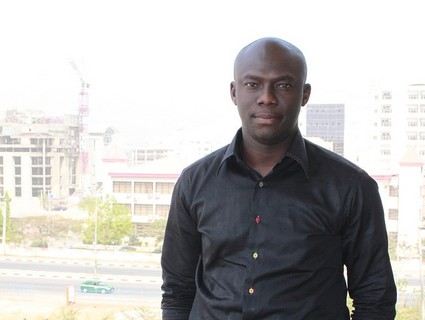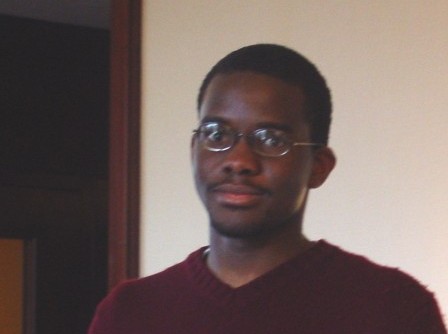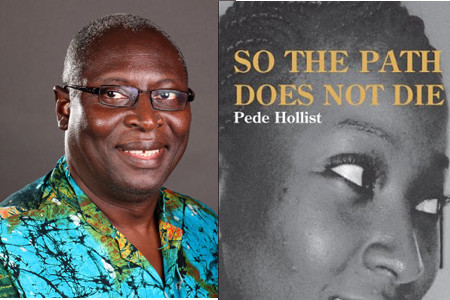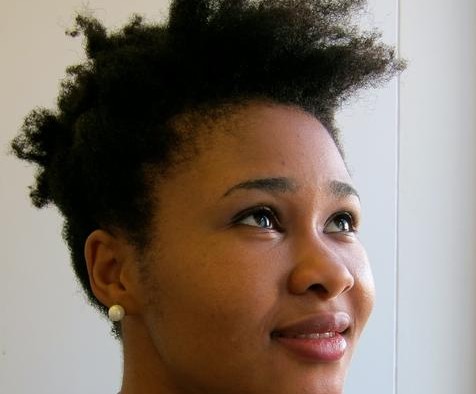Meet the five most famous people in the African literary scene at the moment — Elnathan John, Tope Folarin, Pede Hollist, Abubakar Ibrahim, and Chinelo Akparanta. They are the five that made it to the shortlist of the Caine Prize for African Fiction. Pede Hollist who is Sierra Leonian is the only non-Nigerian in the bunch. All of these writers are emerging voices in the literary scene and are, therefore, relatively unknown. Trust Brittle Paper to fill you in on all you need to know about these writers. When you make an impression in your next cocktail chit chat as an expert on contemporary African fiction, don’t forget to thank me.
Congrats to all the shortlistees!
A few days ago Nollywood A-lister, Rita Dominic, tells Elnathan on Tweeter: “I’ll have drinks any day with a man that’s brilliant and funny! Rare combination!” Yesterday, news came out that he had been shortlisted for the Caine Prize. Elnathan must be having the week of his life. Elnathan is a lawyer by profession. But we know him for his work as a blogger, columnist, and tweeter obsessive. If you are plugged into the social media world of African writing, you should be familiar with Elnathan, a witty satirist, known for his column in the northern nigerian news paper, Sunday Trust. ‘Bayan Layi,’ a short story published in Per Contra is not his first work of fiction. Apparently, he self-published a collection of short stories in 2008. But he has since said, in his classic cynical tone, that it was an “embarrassing collection of short stories which has since gone out of print,” a mistake that he hopes never to repeat. Visit his blog The Dark Corner to get a taste of Elnathan’s signature dark and delicious humor. Read “Bayan Layi,” the short story that got him the Caine nomination here.
Having studied at Oxford University as a Rhodes Scholar, Tope Folarin is not new to this business of winning highly competitive awards. His story “Miracle” was originally published in issue 109 of Transition, a hip magazine centered on Africa and the black diaspora and housed at Harvard University. “Miracle” is part of a novel project titled The Proximity of Distance. Read “Miracle” here.
The full name is Onipede Hollist. Even though Hollist has been shortlisted for his short story, “Foreign Aid,” he is already a published novelist. So the Path Does not Die is his first novel. It was published independently and is being distributed by African Book Collective. Hollist is also an associate professor of English at the University of Tampa in Florida. Read “Foreign Aid” here.
Abubakar Ibrahim is a testament to the truth that small pressess can do big things. The short story “Whispering Trees” for which Ibrahim has been shortlisted is part of a collection by the same name. The collection of stories was published by the Nigerian publishing collective called Parresia Publishers. Ibrahim’s nomination for the Caine Prize certainly shows that Parresia is serious about its “aim to discover and publish new African writing of great merit.” Nigerian author, Uche Umez, once shared this haunting quote on the writing life that he ascribes to Ibrahim: “I might end up, in my old age, alone, writing by the wavering light of a dying candle, scribbling out the lines of my magnum opus – which in fact might never be read by anyone but my brothers, who will find my body next to the uncompleted manuscript.” Read “Whispering Trees” here.
Chinelo Okparanta was named one of 6 new voices of 2012 by Granta. Of all the writers shortlisted, she is the only one who has had professional training in creative writing. Her short story collection titled Happiness, Like Water which she wrote while finishing up a Masters of Fine Arts at the prestigious Iowa Writers Workshop is set for release later this year. Chinelo’s stories are set mostly in Nigeria, a country she left when she was ten to live with her father. Asked what it was like getting a publishing deal right out of school, she replies: “I was lucky. Editors and agents frequently visit the Iowa Writers’ Workshop, and I was lucky to be signed by one of these visiting agents. Shortly after, I was lucky to have two stories picked up by a visiting editor. The timing was right. Eventually the book was sold–in a very non-dramatic, almost underwhelming sort of way.” Read “America” here. A Granta interview here. Her short story “Runs Girl” here.













Veronica Nkwocha May 19, 2013 02:53
Of all the five, I am most familiar with Elnathan John from reading his blog, your description suits him to a tee. A helpful post; a treasure trove which I'm about to happily explore, thank you.